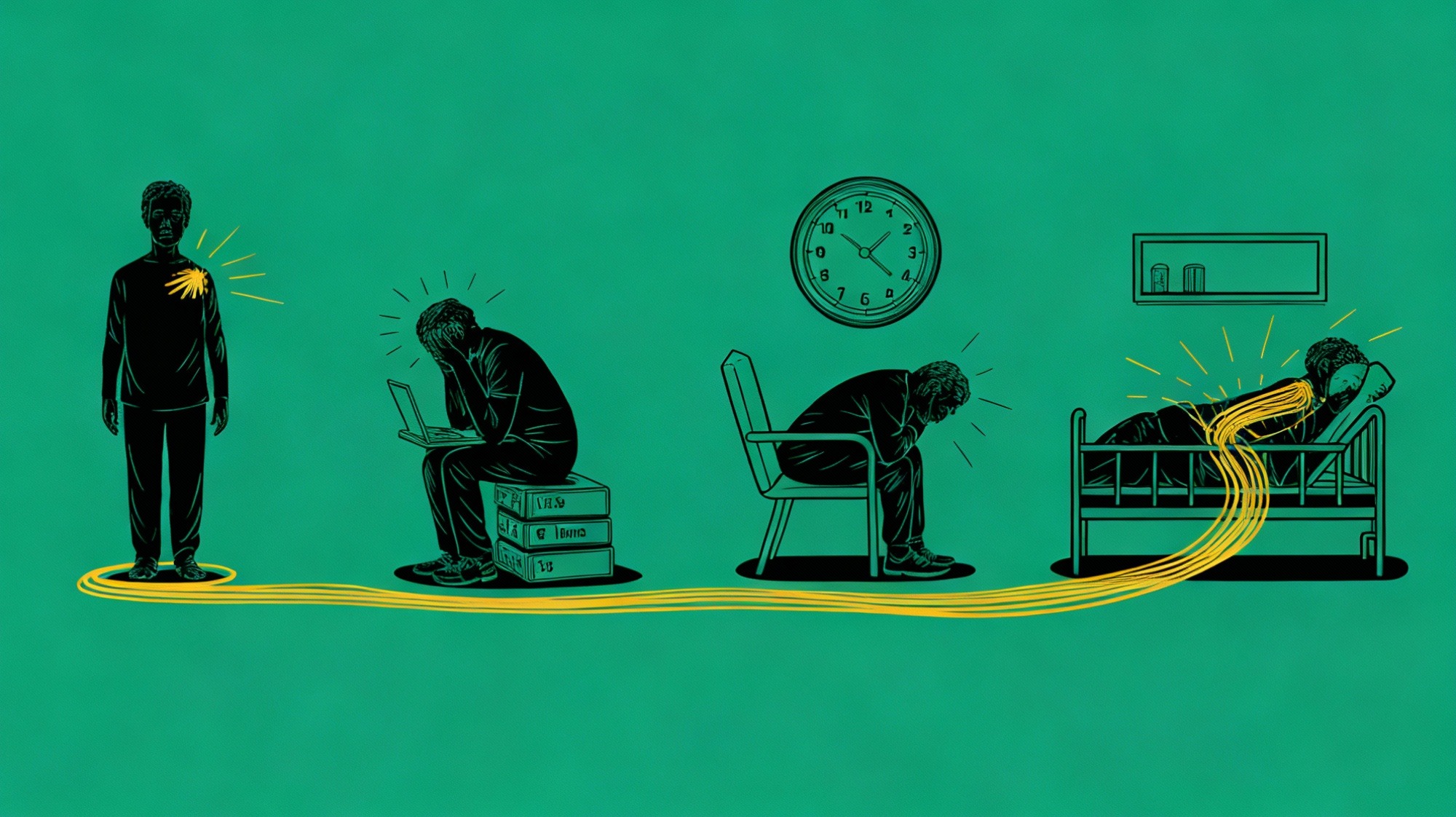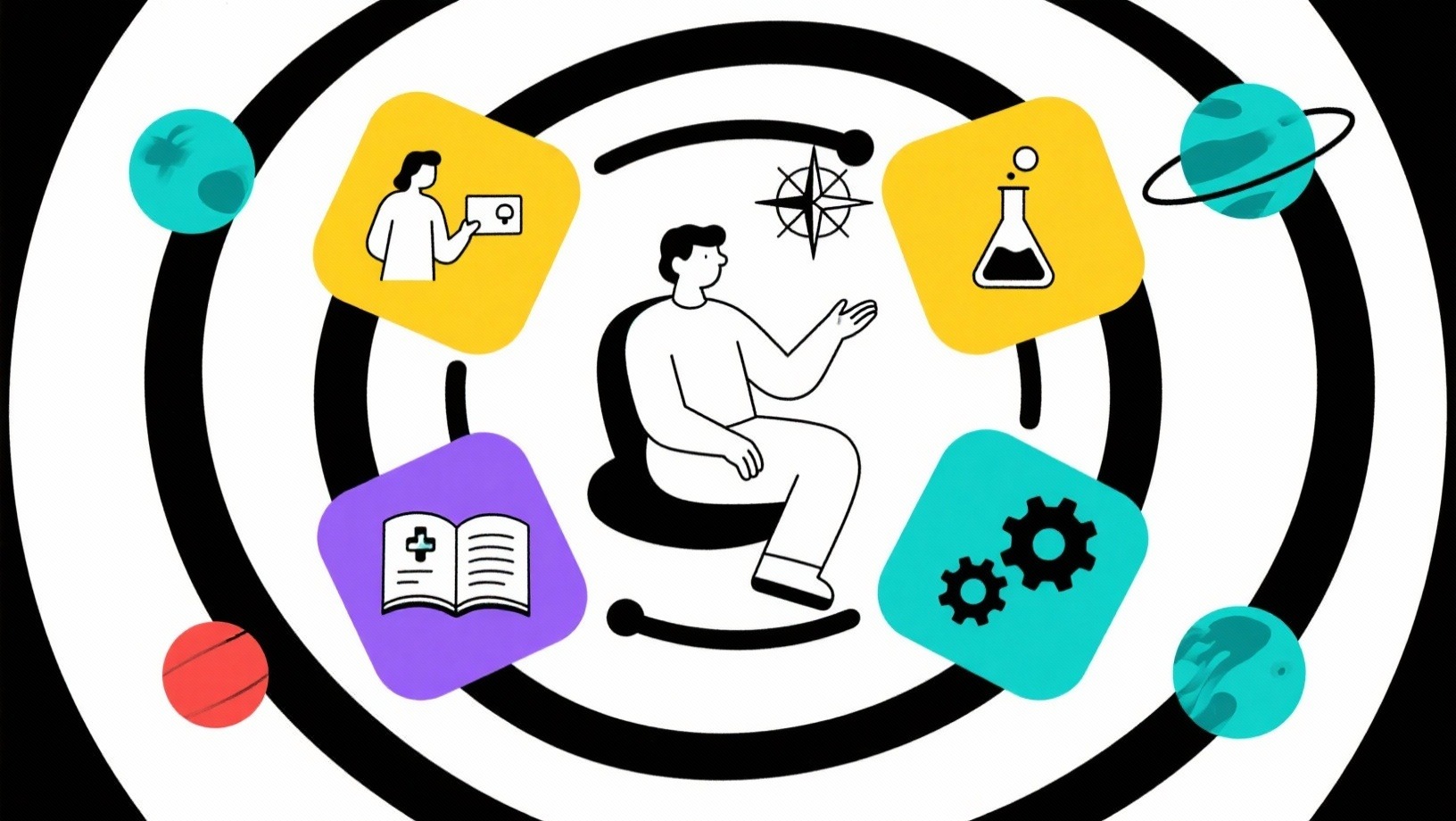Key Takeaways
- Most telehealth platforms deliver fragmented care with different doctors every visit, no medical history continuity, and wait times that defeat the convenience promise
- Loop's Medical Advisors respond in under 60 seconds, remember your complete health history, and prevent small health issues from becoming expensive hospitalizations
- The service is included with your Loop group health insurance, no separate enrollment, no additional premium, no complicated rollout

It's 3 AM. Your employee's kid has a fever.
The doctor's office opens at 11 AM. On Tuesday. Next week. If they're lucky.
Or it's that persistent cough they've been ignoring because who has time to take half a day off work just to sit in a waiting room for two hours, only to be told to "drink warm water" and rest?
Here's what Loop delivers instead: an actual human doctor who responds to your message in under 60 seconds—not tomorrow, not "next available slot," not a chatbot that asks you to rate your pain on a scale of 1-10 before telling you to consult a doctor.
A real physician. Available every single day.
Included free with your Loop group health insurance.
Why Employees Delay Treatment (It's Not About Cost)
The problem isn't the doctor-patient ratio. India has nearly 1.3 million allopathic doctors serving 1.4 billion people. That's roughly one doctor for every 1,300 people, and the WHO says that's not enough. But let's be honest, the real problem isn't the ratio.
The real problem is access.
Most employees don't delay treatment because they can't afford it—they delay it because the system makes accessing care feel like a second job that nobody applied for. Appointments take weeks. Specialists are overbooked. Most clinics close exactly when working people need them most.
Small problems become big problems.
And by the time someone finally gets that appointment, that small infection has snowballed into an emergency hospitalization, that late-night worry has turned into three days of missed work, and what could have been a simple intervention has become an expensive medical crisis.
{{divider}}

Your Employees Can Text a Real Doctor Right Now
Here's what most telehealth platforms offer: an app, a chat interface, maybe a bot, and the promise of "convenient healthcare."
Here's what Loop delivers: an actual human doctor who responds to your message in under 60 seconds. Not tomorrow. Not "next available slot." Not a chatbot that asks you to rate your pain on a scale of 1-10 before telling you to consult a doctor.
A real physician who's available 24/7, 365 days a year.
Every employee covered under your group health insurance gets access through the Loop app. You open it. You type your concern. Within a minute, a doctor is reading your message and responding.
Because healthcare is a deeply personal experience. When you're unwell or worried about a symptom, you shouldn't have to navigate a maze of appointment systems and hold music. You should be able to reach someone who can help. Immediately.
{{divider}}
What Medical Advisors Actually Do for Your Employees
Think of Medical Advisors as healthcare concierges who happen to have medical degrees. They don't just answer questions—they solve the entire problem.
Health queries and guidance: The basics, done well. Medical questions answered. Lifestyle modifications are suggested. Over-the-counter medications are recommended. Home remedies based on symptoms. The kind of guidance you'd get from a doctor in your family, except this doctor is available when your family doctor is asleep.
Triage and specialist routing: No more guessing whether you need a cardiologist or a gastroenterologist. No more googling symptoms and convincing yourself you have a rare tropical disease. Medical Advisors assess your situation and guide you to the right specialist immediately.
Lab test coordination: They help book diagnostic tests, review reports, explain what those parameters actually mean (because "triglycerides," “HDL,” “hsCRP” can sound alien), and share results with consulting doctors before appointments. You show up to your appointment with your doctor already knowing your history.
Care continuity: This is where it gets interesting. They document complete health histories and follow up on ongoing treatments. You never have to repeat your medical history to every new doctor you see. Someone finally remembers that you're allergic to dust.
Administrative support: Claims queries? Routed. Membership questions? Answered. Technical issues? Handled. They follow up until everything is resolved.
You don't fall through the cracks.

{{divider}}
How Small Health Issues Become Expensive Hospitalizations
Let's talk about what actually happens in companies without proactive healthcare support.
The hospitalization cascade: It starts with something small — a cough that won’t go away. The employee ignores it, caught up in deadlines and meetings. Weeks pass, the cough worsens, but scheduling a doctor’s visit feels like another full-time job. By the time they finally seek help, it’s pneumonia.
What could’ve been treated with a quick consult turns into a hospital stay. The company bears the cost through a major claim, the employee loses weeks of productivity, and their family faces stress and uncertainty.
A simple delay spirals into a crisis for everyone involved.
Now imagine catching that cough early. A quick chat with a Medical Advisor. "Get this checked out, here's what to watch for, here's a specialist who can see you." Problem addressed before it cascades.
Budget streamlining through early intervention: Medical Advisors catch minor health issues before they become expensive disasters. Elevated blood sugar spotted in a routine conversation leads to diet changes instead of diabetic complications three years later. A concerning chest pain gets triaged properly, sometimes it's anxiety (deep breathing exercises), and sometimes it needs immediate attention (ER, now).
Early treatment saves money. It saves health. It saves the peace of mind that comes from knowing you're not walking around with a problem that's getting worse.
Measurable employee satisfaction: Loop maintains a consistent 3.8 out of 4 rating on Medical Advisor interactions, reviewed weekly. First response times average under 60 seconds. Resolution times average 10-12 minutes.
But here's the real metric: employees have called us requesting to continue the service after their company switched insurance providers. They've advocated to their management to switch back to Loop. That's not satisfaction, that's attachment.

Reduced absenteeism: With 58.13% of corporate healthcare revenue now coming from hospitals embedding digital modules, employers are bundling telehealth into wellness perks specifically to control absenteeism and claims.
Loop's proactive model doesn't just react to problems, it prevents them.
Competitive advantage in talent retention: There are documented cases of employees preferring companies with Loop partnerships. In a tight talent market, where everyone offers "competitive benefits," good healthcare stands out.
Because people remember when they needed help at 1 AM and got it in under a minute.
{{divider}}
No Enrollment Forms, No Training Decks, No Complicated Rollout
Loop's Medical Advisor service works seamlessly with your existing group health insurance. No separate enrollment. No additional premium. No complicated rollout that requires three training sessions and a 47-slide deck.
Every employee and their covered family members get access through the Loop app. That's it. That's the implementation.
The service complements both preventive and reactive care. Medical Advisors provide proactive health management for chronic conditions like diabetes and hypertension. They also handle acute issues—sudden fever, injury guidance, that weird rash that showed up this morning.
During COVID-19, online consultations in India jumped 300% while in-person visits fell to just 32% of previous levels. That behavior shift stuck because people realized digital healthcare could actually work. But quality matters. Loop's human doctors—not chatbots, not AI, not automated responses—maintained trust through that entire transition.
{{divider}}
Your Top 5 Questions About Medical Advisors
Q: How quickly do Medical Advisors actually respond?
A: Loop maintains an average first response time under 60 seconds, even during high chat volumes. Not "within 24 hours." Not "next business day." Actual humans responding in under a minute.
Q: Can Medical Advisors prescribe medications?
A: Medical Advisors suggest over-the-counter medications but don't provide prescriptions. For prescriptions, they route employees to Loop's in-app consulting doctors who provide full prescriptions after diagnosis: same app, same seamless experience, just a different type of consultation.
Q: What if an employee needs a specialist consultation?
A: Medical Advisors assess symptoms and guide employees to the appropriate specialty. They document the health history and share it with the specialist before the appointment. The specialist sees your case before you even show up. Specialist consultations are also free for Loop members.
Q: How does this affect our claims experience and ratio?
A: Loop's proactive model catches health issues early, reducing hospitalizations and high-value claims before they happen. This early intervention approach is designed to optimize claims ratios over time by preventing expensive complications.
You're not just paying claims. You're preventing them.
Q: Is this service available to employees' family members?
A: Yes. All family members covered under your GMC policy can access Medical Advisors and doctor consultations through the Loop app at no additional cost. Because health problems don't only happen to the person who works at your company.
{{divider}}
When Employees Choose Jobs Because You Have Loop
Loop's Medical Advisor service fundamentally changes how your employees experience healthcare benefits—instead of reactive insurance that pays claims after someone ends up in the hospital, you're offering proactive health assurance that prevents people from ending up in the hospital in the first place.
The best benefits programs solve actual problems people have in their real lives—not theoretical problems that look good in benefits presentations but never materialize in practice.
When your team members face a health question at 12 AM, they shouldn't wait hours or days for an answer that determines whether they sleep tonight or spiral into anxious googling.
When someone's worried about a symptom but not sure if it's serious enough to take time off work, they shouldn't have to choose between their health and their job, that's not a choice anyone should have to make.
When someone needs to navigate the healthcare system but doesn't know where to start, they shouldn't be alone in that maze.
They deserve immediate access to qualified medical advice. They deserve someone who remembers their health history. They deserve a system that works the way they need it to work, not the way it's always been done, because that's how insurance worked in the 90s.
Loop members already know this. The service has become part of their lives.
Employees choose jobs based on Loop availability. They request to continue service even after the company changes insurance providers. They tell their friends about it.
That's not marketing speak—that's what happens when you build something people actually need and you do it well, consistently, without cutting corners or treating healthcare like a cost center to be minimized.
{{divider}}
Want to see how Loop's Medical Advisor service works within your benefits ecosystem? Let's discuss how this fits your health insurance strategy and employee wellness goals.
















